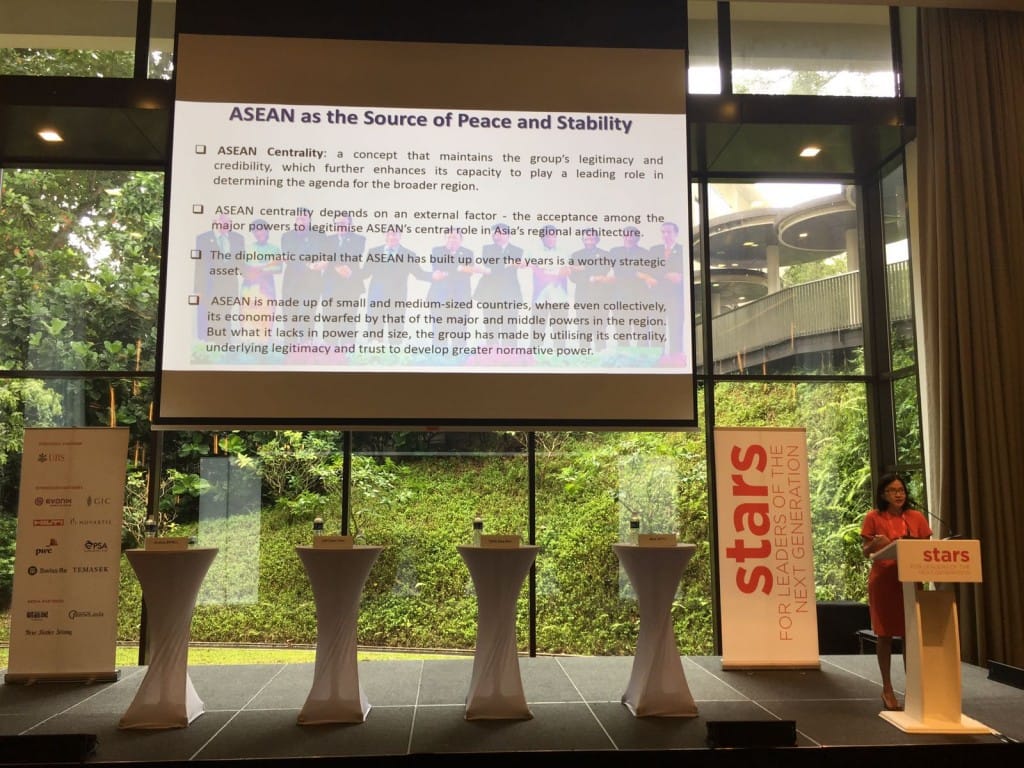The Association of Southeast Asian Nations (ASEAN) is celebrating its jubilee anniversary at a time where anti-globalisation sentiments are on the rise. As countries become more inward looking and aim to prioritise domestic issues, the relevance of multilateral organisations such as ASEAN has been called into question.
“The current anti-globalisation sentiment will force ASEAN leaders to accelerate the momentum of their economic integration,” said Ms Chen Chen Lee, Director of Policy Programs at the Singapore Institute of International Affairs (SIIA). She reiterated the inward looking sentiments in the West have reenergised the momentum for negotiations towards the ASEAN-led Regional Comprehensive Economic Partnership (RCEP) negotiations – the biggest, most inclusive free-trade agreement in the region.

Ms Lee was speaking on the panel, “ASEAN: Promise and Reality,” at the Stars Singapore Symposium, which was held from 22 to 25 February 2017. The panel featured Ms. Andrea Appell, the public affairs officer from the U.S. Mission to ASEAN and Mr. Tang Siew Mun, the Head of ASEAN Studies Centre, Institute of Southeast Asian Studies (ISEAS).
Although ASEAN aims to shape regional trade and investment rules through the RCEP, Ms. Lee reminded the audience that ASEAN did not start off as an economic entity. Referring to why ASEAN was created in 1967 and its ability “to use its diplomatic capital to maintain the peace and security of region, Ms Lee argued that ASEAN over time has “developed a worthy strategic asset.”

However, ASEAN’s ability to continue to serve as the source of peace and stability is threatened by the fast-evolving regional architecture. Referring to the growing questions about the effectiveness of US leadership in the region, especially in light of the USA withdrawing from the Tans-Pacific Partnership (TPP). Ms. Lee warned the audience that “Trump’s America First ideology and growing inward looking sentiments could have serious consequences to the international order.”
The growing wariness among the American public of what they regard as USA’s excessive involvement in global affairs comes at a time where China is strategically engaging with the region. “Beijing is trying to align itself closely to ASEAN’s domestic challenges and potentially accumulate more strategic and diplomatic capital,” Ms. Lee said.
As the landscape in Asia continues to evolve, it has become increasingly important for ASEAN to move past its role as a convening power to influence and shape the events in Asia. Ms. Lee reiterated that the ASEAN’s relevance in the long-run in contingent on “all ten ASEAN member states speaking with a common voice, which will result in a cohesive, coordinated, and coherent position on global and regional issues”.
Photo Credit: SIIA
Image Credit: ASEAN, ASEAN Tourism Competitiveness Committee (ATCC)




